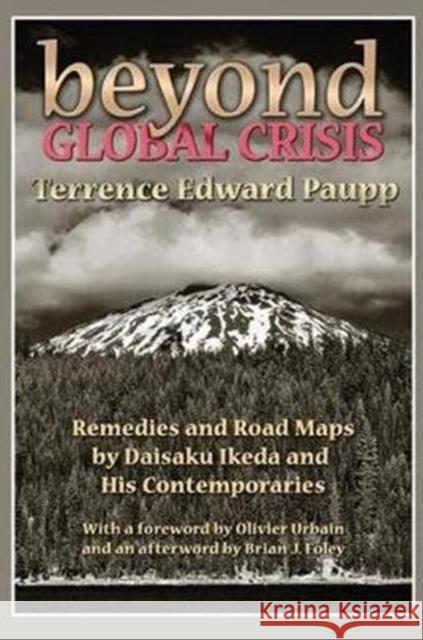Beyond Global Crisis: Remedies and Road Maps by Daisaku Ikeda and His Contemporaries » książka
topmenu
Beyond Global Crisis: Remedies and Road Maps by Daisaku Ikeda and His Contemporaries
ISBN-13: 9781138519503 / Angielski / Twarda / 2017 / 455 str.
Beyond Global Crisis: Remedies and Road Maps by Daisaku Ikeda and His Contemporaries
ISBN-13: 9781138519503 / Angielski / Twarda / 2017 / 455 str.
cena 775,66
(netto: 738,72 VAT: 5%)
Najniższa cena z 30 dni: 730,42
(netto: 738,72 VAT: 5%)
Najniższa cena z 30 dni: 730,42
Termin realizacji zamówienia:
ok. 22 dni roboczych
Dostawa w 2026 r.
ok. 22 dni roboczych
Dostawa w 2026 r.
Darmowa dostawa!
In this volume, Terrence Paupp critically describes the various dimensions of today's global crisis











